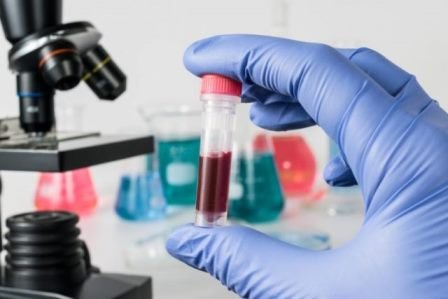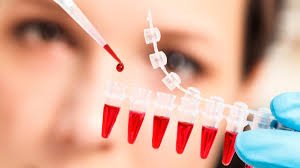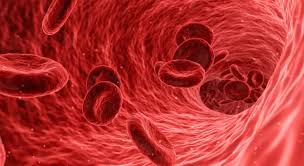Are we close to getting a cure for Cancer?

A research done by the Johns Hopkins University, located in Baltimore, Maryland (United States). He has developed a mechanism that allows through a blood test to detect the presence of eight types of cancer. The test is called CancerSEEK, and is able to detect the presence of cancers of the ovary, pancreas, esophagus, liver, stomach, intestine, lung or breast.
Unlike conventional biopsies, in which a sample of the tumor is required to confirm a diagnosis, the CancerSEEK test is less invasive and can be performed without knowing that there is cancer, therefore, it allows an early diagnosis, extending the possibilities of healing.

Before the first symptoms appear, cancer cells begin to release small amounts of mutated DNA and release abnormal proteins in the blood. Although normal cells also release DNA and proteins into the bloodstream, those released by cancer cells are unique and contain features that are not present in those released by normal cells.

The newly developed test focuses on finding cancer in the blood and is highly sensitive, which allows to accurately detect a mutated DNA fragment among 10,000 thousand normal DNA fragments, something that would literally be impossible.
A study conducted on about 1,000 thousand patients, who were taken blood samples, the test detected between 33% and 97% cases of disease. The easiest cancer to detect was the ovarian cancer, followed by cancer of the liver, pancreas, esophagus, stomach, colorectal, lung and breast.
For these five types of cancers do not currently have screening tests (cancer of the ovary, liver, stomach, pancreas and esophagus), sensitivity varied between 69% to 97%.
When the test was evaluated in people who were in good health, there were seven false positive results. Oncology professor at Johns Hopkins University, Kenneth Kinzler, and participant in the study, stated the following:
"The high level of specificity was essential because false-positive results can subject patients to unnecessary invasive follow-up tests and procedures to confirm the presence of cancer."

Along with the detection of cancer, the blood test accurately predicted what type of cancer was in 83% of cases. In the not so distant future, the CancerSEEK test could be used in routine screening programs to significantly increase the proportion of patients receiving early treatment, a time before the cancer appears on conventional scans.
Regarding its cost, the research team is trying to make it accessible for those people who need to detect these types of cancer in time.

If you liked my post ... @milennycova

To the question in your title, my Magic 8-Ball says:
Hi! I'm a bot, and this answer was posted automatically. Check this post out for more information.
Thank you very much, I will be attentive to your updates